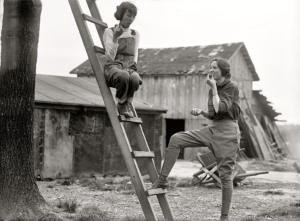Contributor(s): Shared on: Categories: Tags: | Contribute a translation | Source (English) |
|---|
|
For those at home | |
O God, Father in Heaven,
who hast set Thy earthly children in families
and given to them the joys of human companionship,
bless, we beseech Thee, those from whom we are separated. | |
May our mutual love bridge the distance between us. | |
Assure them
that in absence
our hearts are true
and may the thought of them
restrain and inspire us
day by day. | |
Relieve them
from undue anxiety in our behalf. | |
Spare them,
if it be Thy will,
to us
and us to them,
so that in Thine own good time
we may look once more
upon their faces. | |
Bestow upon them
all that they need
for the body and the soul. | |
We thank Thee
for those who ministered to us when we were young and weak,
for the friends and kindred of maturer years,
and for all whom we love.
May we be more worthy of their noblest thoughts of us
and may we serve them better in the future than in the past. |
“[Prayer] for those at home,” a variation of a prayer by Rev. Howard A. Bridgman (1860-1929), is found adapted (without Christian god-language) by Rabbi Morris S. Lazaron in his World War Ⅰ era prayerbook, Side Arms: Readings, Prayers and Meditations for Soldiers and Sailors (1918), on page 25. The original version of the prayer was first published in The Service Song Book (Young Men’s Christian Associations 1917), pp. 86 in the abridged edition. Source(s)
 Morris Samuel Lazaron (1888–1979), was a Reform Jewish rabbi in the United States. Born in Savannah, Georgia, he was ordained by Hebrew Union College in 1914. He served as rabbi in Wheeling, West Virginia, for a year and in 1915 was appointed rabbi of the Baltimore Hebrew Congregation, the large and distinguished Reform synagogue in Baltimore where he served for 31 years as rabbi and rabbi emeritus. During World War I, he wrote Side Arms: Readings and Meditations for Soldiers and Sailors (1918). As rabbi he initiated youth-oriented programming, introduced innovative rituals, and was an early supporter of the interfaith movement, working with the National Conference of Catholics and Jews and traveling throughout the United States with a priest and a minister to represent the three faiths of America. Lazaron's retirement from this office in 1949 was linked to his active identification with the anti-Zionist American Council for Judaism, of which he was a founder and vice president. This position was not problematic with his congregation until after the Holocaust, and especially after the establishment of the State of Israel. This led to the severing of his relationship with Baltimore Hebrew, including his resignation as rabbi emeritus. He was also a member of the National Council of the American Friends of the Middle East. He wrote several works, including Ask the Rabbi (1928); The Consolidation of Our Father (1928); Homeland or State: The Real Issue (1940); In the Shadow of Catastrophe (1956); Is This the Way? (1942); and Olive Trees in a Storm (1955).  Reverend Dr. Howard Allen Bridgman (1860-1929) was both a Congregationalist figure and educator. He studied at Amherst College, Hartford Theological Seminary, and Yale Theological Seminary. Bridgman was officially ordained in 1890. During this time, from 1883-1884, he was the principal of Massachusetts' Granby High School. In 1908, he was awarded a Doctor of Divinity from Oberlin College. In 1889, Bridgman took the job of managing editor of the Christian magazine, "The Congregationalist" and remained in the position until 1911 when he took over as the publication's editor-in-chief. He kept this tenure until 1921, at which point he accepted the role of headmaster at the Lawrence Academy. In 1925, left this position and founded his own school, Bridgman School, which he also served as the headmaster of. Bridgman authored three books in his lifetime, "Steps Christward," "Real Religion," and "New England in the Life of the World." He served on a number of missionary councils abroad and was in attendance of the 1914 peace conference in Switzerland. Bridgman was also a director at the South End Social Settlement. Aharon Varady (M.A.J.Ed./JTSA Davidson) is a volunteer transcriber for the Open Siddur Project. If you find any mistakes in his transcriptions, please let him know. Shgiyot mi yavin; Ministarot naqeni שְׁגִיאוֹת מִי־יָבִין; מִנִּסְתָּרוֹת נַקֵּנִי "Who can know all one's flaws? From hidden errors, correct me" (Psalms 19:13). If you'd like to directly support his work, please consider donating via his Patreon account. (Varady also translates prayers and contributes his own original work besides serving as the primary shammes of the Open Siddur Project and its website, opensiddur.org.) Read a comment / Leave a comment (moderated) Works of related interest: |













Leave a Reply